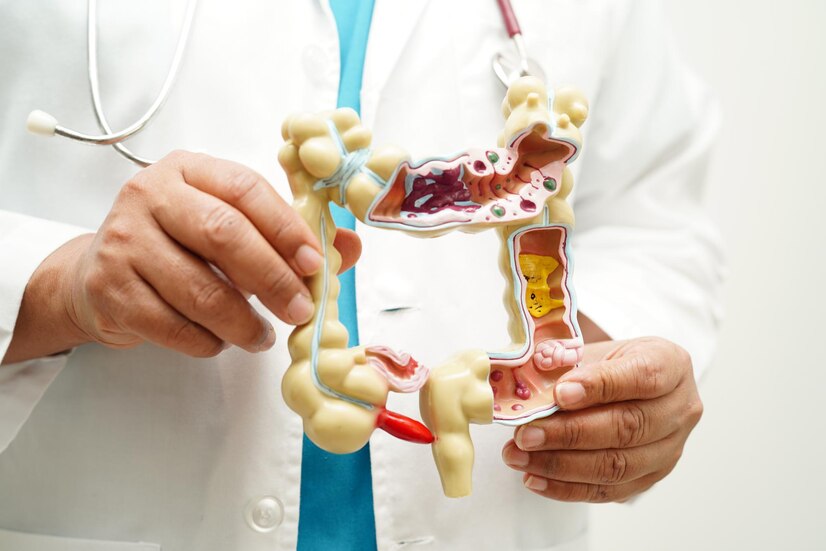Imagine your digestive system as a tranquil river, smoothly carrying nutrients throughout your body. Now picture that river suddenly becoming a raging torrent, its banks inflamed and irritated. This is the reality for millions of people living with Crohn’s disease, an inflammatory bowel disease (IBD) that causes chronic inflammation in the digestive tract. While there’s no cure, there are effective treatment options that can help manage symptoms and improve quality of life.
This article delves into the world of Crohn’s disease treatments, empowering you with knowledge and offering a path towards a calmer digestive landscape.
Unveiling the Arsenal: A Look at Common Treatment Approaches
Crohn’s disease manifests in various ways, from abdominal pain and diarrhea to fatigue and weight loss. Fortunately, there’s a diverse arsenal of treatment options available, each targeting different aspects of the disease. Let’s explore some of the key players:
-
Anti-inflammatory Medications: These medications, like corticosteroids (prednisone) and 5-aminosalicylates (mesalamine), act as firefighters, aiming to reduce inflammation in the gut. Corticosteroids are typically used for short-term relief due to potential side effects, while 5-aminosalicylates may be used for maintenance therapy.
-
Immunomodulators: If the fire analogy holds true, then immunomodulators are like recalibrating the fire alarm system. These medications, such as azathioprine and mercaptopurine, work by regulating the immune system, which often plays a role in Crohn’s disease. They typically take longer to work but can provide long-term benefits.
-
Biological Therapies: These cutting-edge treatments are like highly targeted fire extinguishers. Biologics, like infliximab and adalimumab, block specific proteins involved in the inflammatory process, offering a more precise approach to managing Crohn’s disease.
-
Antibiotics: While not directly targeting inflammation, antibiotics can be helpful in treating complications of Crohn’s, such as fistulas (abnormal connections between bowel segments) and abscesses (collections of pus).
-
Surgery: In severe cases where medication fails to control symptoms or complications arise, surgery might be necessary. The type of surgery depends on the extent of the affected bowel area.
It’s important to remember that there’s no one-size-fits-all approach to Crohn’s disease treatment. The best course of action will be determined by your individual situation, disease severity, and response to medications. Working closely with your doctor is crucial for creating a personalized treatment plan.
Beyond Medication: Lifestyle Modifications to Empower You
While medications play a vital role in managing Crohn’s disease, there’s more you can do to empower yourself on this journey. Here are some lifestyle modifications that can significantly impact your well-being:
-
Diet: Certain foods can trigger flare-ups, so identifying and eliminating them from your diet can be very helpful. Keeping a food diary to track your meals and any subsequent symptoms is a great way to pinpoint potential triggers. It’s always best to consult a registered dietitian for personalized dietary advice.
-
Stress Management: Stress can exacerbate Crohn’s symptoms. Techniques like yoga, meditation, or deep breathing can help manage stress and improve overall well-being.
-
Smoking Cessation: Smoking is a major risk factor for developing Crohn’s disease and can worsen its course. Quitting smoking is one of the most impactful lifestyles changes you can make.
-
Support System: Living with a chronic illness can be isolating. Building a strong support system of friends, family, or a support group can provide invaluable emotional and practical support.
A Brighter Future: Resources and the Road Ahead
Crohn’s disease can be a challenging condition, but with proper treatment and lifestyle modifications, you can manage your symptoms and live a fulfilling life. Here are some resources that can be helpful on your journey:
- Crohn’s & Colitis Foundation: https://www.crohnscolitisfoundation.org/
- National Institute of Diabetes and Digestive and Kidney Diseases: https://www.niddk.nih.gov/health-information/digestive-diseases/crohns-disease
- Crohn’s Disease Support Groups (search online for groups in your area)
Remember, you’re not alone in this. With knowledge, the right treatment plan, and a commitment to healthy habits, you can effectively manage Crohn’s disease and live a life brimming with vitality.
